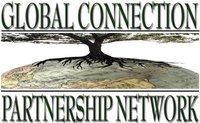 More Thoughts on Strategic Networks
More Thoughts on Strategic NetworksMission networks have always amazed me. You probably have had similar experiences - you turn on your computer, pull up your email to find a note from someone who was referred to you by someone else because you have an affinity for the same people, are working in the same area or because they have heard of what you are doing and want to be a part of it. I call it the God-web. When I am asked, How do you two know each other? or How did you get connected to that? - I always respond - it's the God-web. God has a way of bringing together Kingdom people who will benefit from affiliation.
It has been a dream of mine for several years to simply promote connectedness between people, organizations, networks, churches and those with common affinities. How much could be accomplished and more wisely stewarded if we had knowledge of what others in the Kingdom are doing among those we are called to reach? How can we encourage these types of connections among those who are working in various regions of the world? How much more strategic and effective might your church be in mission if you were to find out what God is already doing and join Him in it?
Case in point - my church recently got hooked into a partnership of various organizations - some of them secular and some of them Christian in nature. The magnet that drew us all together was a love for the people of a particular war-torn country. My church's interest arose out of a commitment to a particular people group in that country. However, we have found ourselves invested in a partnership that includes two major universities, a large U.S. city government, an international Christian orphan care agency, a U.S. non-profit agency, two churches and a few retired missionaries who can't get a country out of their hearts. As God drew these entities together, we learned of evangelical organizations that were already invested in the same place. After a couple of emails and phone calls, our network merged with an existing network with similar goals. They had more recent experience in our target area. What I learned in just a few conversations will save me hours and volumes of research. From interaction with others, we will develop an informed strategy that meets real needs and focuses on what God is already doing.
Stan Parks initiated a conversation about strategic networks in the last GCPN Communiqué entitled, The Body of Christ United for the Great Commission. I would like to continue that conversation from the church's perspective. If your church is asking any of the following questions, you will understand the beauty of strategic networks:
- How do I know where to send my people who feel called to mission?
- We can't just send someone out by themselves. They need team and community. Who is going to provide this for them?
- How do I make sure that my church is doing strategic mission?
- We feel called to work among the X People, but where should we begin?
- What can the North American church do to fuel other nations who are doing mission?
- How can we foster networking among the various individuals, groups and churches working in a specific region?
When a young woman in our church had completed her training for cross-cultural service, she clearly understood that God was calling her to a specific country. Because we have a strategic catalyst working in that region who makes it his job to be aware of the many places God is moving and working in his region as well as the needs in various areas, he was able to direct this young woman to a place of service in the country of her call. This is only one small part of the role our strategic catalyst plays in his region. He serves as a connector, networker and catalyst for workers from many nations who desire to partner with one another to reach the UPG's. What if there were 12 such catalysts in various regions around the world? What if there were 12 or more strategic teams made up of folks who were willing to share resource, knowledge, expertise and live with the commonality that should characterize Kingdom people?
GCPN desires to promote regional strategic networks by helping to identify strategic partners and provide them with the additional resources needed for strategic meeting, planning, communication and new works. In regions where these partners cannot be identified, we desire to place a catalyst to develop strategic teams. You can assist this process in several ways:
- Pray for God to create a desire for partnership among Kingdom people in each region.
- Identify individuals who might be willing to serve as catalysts for each region.
- Give to provide resource for connectedness and strategic structures.
For more information on strategic teams, contact Stan or Cindy at info@gcpn.org
Cindy Wiles, Executive Director

